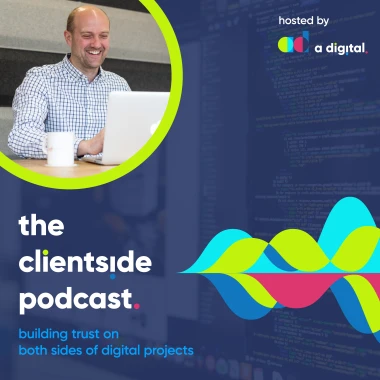
Why SEO is never done, with Dean Duffield
The Clientside Podcast
After being taken aback by a conversation that included the sentence 'we've done the SEO', we talk about why Search Engine Optimisation is an ongoing activity and will never be 'done'. In this episode, A Digital marketing lead Dean Duffield joins the show again to talk about why companies need to have a basic understanding as a minimum of the main factors that influence a strong showing in the search engine results pages.
Listen on your smart device or read the transcript below
So SEO is basically improving the positioning of a website's page ranking within search engine results. And generally, we are talking about Google.
Dean Duffield Tweet